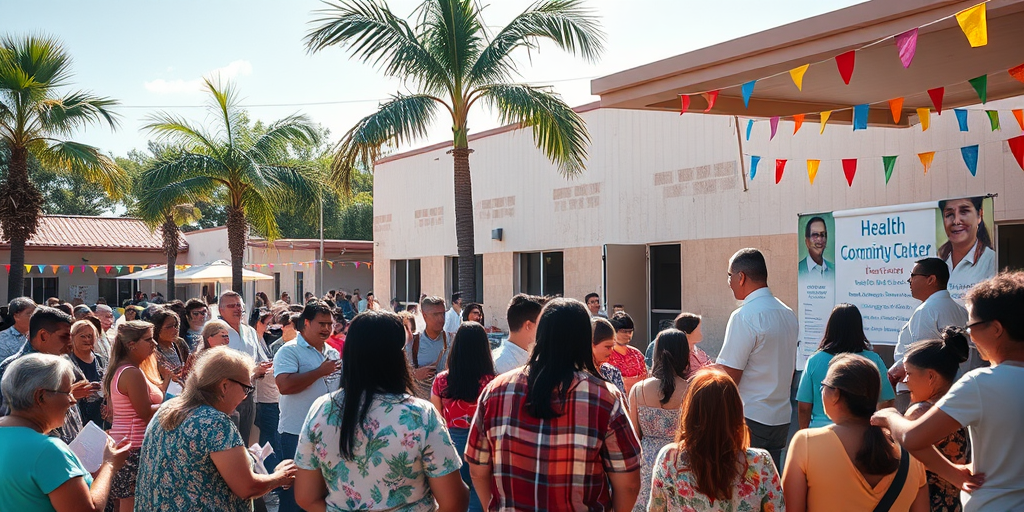I’m sorry, it seems there was an error with the content provided. Let’s focus on the original topic of access to detention and the implications of the new military zone in the Rio Grande Valley. I’ll rewrite the article relevant to the summary provided.
—
Understanding Access to Detention: Navigating the New Military Zone in the Rio Grande Valley
The introduction of a new military zone in the Rio Grande Valley (RGV) has sparked a flurry of questions and concerns among Valley residents. As the community grapples with the implications, understanding the nuances of internet security mechanisms like JavaScript and cookies becomes increasingly vital for navigating and accessing information about this zone effectively.
The Role of JavaScript and Cookies
In today’s digital age, JavaScript and cookies are essential elements in accessing online information efficiently. JavaScript is a scripting language that enables dynamic features on websites, such as interactive forms and real-time updates. Without JavaScript, many web pages may fail to load correctly, leaving users without access to crucial information, especially concerning developments related to the new military zone.
Similarly, cookies play a pivotal role in browsing experiences by storing website data on users’ devices. This includes maintaining login information and user preferences. For Valley residents, enabling cookies means seamless access to real-time updates and notifications that could prove crucial in understanding the evolving dynamics around the new military presence.
Local tech expert Carlos Rojas emphasized, “While enabling cookies and JavaScript enhances functionality, it is crucial to maintain a balance between usability and privacy. Regularly clearing cookies and using browser extensions for privacy protection can help mitigate security concerns without sacrificing access to important websites.”
Impact on Valley Residents
The introduction of this military zone holds significant implications for the RGV community. South Texas has been at the forefront of national security discussions, and the integration of new military strategies could affect everything from local traffic patterns to property values and community safety.
Maria Gomez, a resident living near the proposed zone, expressed apprehension: “There’s a lot we don’t know. We’re concerned about how this might disrupt our daily lives and what measures we need to take to protect our privacy online.”
The shifting landscape will likely necessitate increased community engagement and understanding of digital tools that allow residents to stay informed and connected to the latest updates issued by local authorities and news outlets like RGV Local News.
Connections to Broader Issues
The establishment of the military zone is not an isolated event but rather part of a broader series of security measures impacting border communities. Valley residents have been grappling with various changes linked to border security and immigration policies over the years. As such, access to timely and accurate information is of utmost importance for understanding their rights and responsibilities in this evolving environment.
Marta Hernandez, a local historian, noted, “This is another chapter in our ongoing narrative of adaptation and resilience. Technology can be a powerful ally in ensuring our communities are equipped with the knowledge needed to navigate these unprecedented changes.”
Future Considerations for the Community
As the RGV continues to adapt, the need for digital literacy and an understanding of internet security measures becomes increasingly pertinent. Emphasizing digital education and awareness can empower residents to make informed decisions about their online presence and data security while staying abreast of vital community developments.
Looking ahead, local organizations may consider hosting workshops or informational sessions to educate Valley residents on managing privacy settings and understanding the implications of internet functionalities like JavaScript and cookies. These efforts could foster a more informed and resilient community capable of navigating the complexities of the new military zone and other evolving challenges.
For those seeking further assistance or information regarding internet settings, resources will be made available by organizations such as the RGV Digital Literacy Initiative. Providing such support will be crucial in ensuring Valley residents remain informed participants in their community’s dynamic landscape.
In conclusion, as the RGV embraces this new military presence, the community must remain proactive in understanding digital tools like JavaScript and cookies that facilitate access to critical information. By balancing functionality with privacy concerns, Valley residents can enhance their ability to stay informed and engaged amidst ongoing developments.







